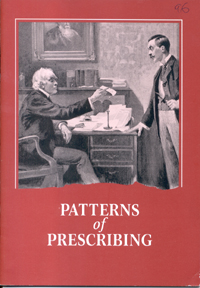Outcomes, it is commonly said by general practitioners, are more difficult to measure in our discipline than those in hospital based specialties. This is true but…
Outcomes, it is commonly said by general practitioners, are more difficult to measure in our discipline than those in hospital based specialties. This is true but it should not be used as an excuse for continuing sloppy work, for sufficient measures of outcome…
Outcomes, it is commonly said by general practitioners, are more difficult to measure in our discipline than those in hospital based specialties. This is true but it should not be used as an excuse for continuing sloppy work, for sufficient measures of outcome do exist to keep practices busy with audit for some time to come. We have good data – arguably the best in the world – about the incidence and prevalence of common disease in the community and where these can be linked to effective treatments we have a very valuable tool indeed. Two examples of this linkage are described in this paper. We know the prevalence of hypertension and diabetes. We know the benefit to patients of good control of these conditions and we can to some extent measure the savings to the National Health Service provided by that good control. We are now beginning to get good data about our prescribing for these conditions and combined they provide a lesson for every general practitioner in the country and an indication of where the first audit exercises might most usefully be concentrated.
Professor Teeling Smith has shown that even in those practices which have disciplined themselves to record accurately their prescribing, using computer systems, there is a significant under-identification of hypertensive patients and diabetic patients who could benefit from treatment. There is a probability that in less well-organised practices the shortfall would be greater. This is one important fact highlighted in this paper. There is a second, equally important. The phrase with which we have become comfortable, for it sounds better than ‘cutting costs’, ‘downward pressure’ on prescribing may actually do more harm than good and be more expensive if applied in an unsophisticated manner to our work. If our costs have been reduced by our failure to identify people, such as those who could benefit from care of raised blood pressure or non-insulin dependent diabetes, it would be a very expensive saving indeed.
Fortunately, it is unlikely to happen. The FHSAs are now advised by competent ex GPs who are unlikely to fail to understand the message of this paper. It is even probable that it will trigger a welcoming response from busy GPs who wonder about the benefit to patients from much of what they are being asked to do by their new contract. Here is a real opportunity by which audit in the practice identifying the prevalence rates of two very common problems, linked with examination of PACT data, can do something intellectually satisfying and providing real help to their patients. Furthermore, it shows the way in which we can look at cost-benefit for many other conditions as diverse as hypothyroidism and schizophrenia – a very exciting prospect.
